More than 100 government and civil society representatives of ASEAN Regional Forum countries assembled in Dili, the capital city of Timor-Leste, and shared their experiences and know-hows on conflict prevention and early warning. The participants included three members of the Global Peacebuilding Association of Japan: Sukehiro Hasegawa, Ken Inoue and Naoko Kugamai as well as Professor Uesugi of Waseda University.
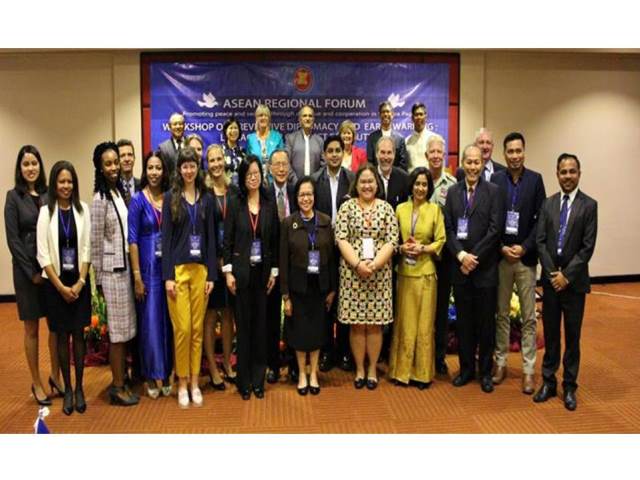
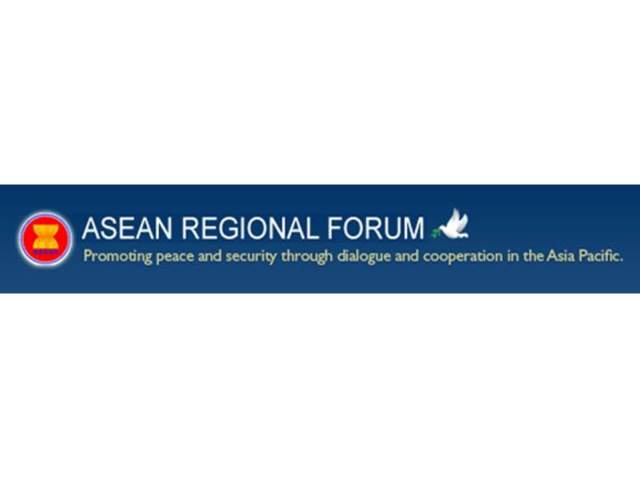
Preventive diplomacy and early warning systems are essential tools in the effort to stem the escalation of conflict. Indeed, the preventive aspect of diplomacy necessarily involves key attributes of early warning systems in order to be effective. For regional organizations such as ASEAN, these areas of information gathering and analysis; relationship building; coordination and communication among key stakeholders; and strategic planning all serve to inform and shape effective preventive diplomacy efforts. Early warning systems are part of a broader conflict-prevention architecture and are designed to collect information and to analyze this information for the purpose of developing strategic options for responding to crises. As such, it is necessary for regional organizations such as ASEAN to continue to develop and build upon methods for enhancing their capacity in this arena. This workshop is designed to explore the linkages between preventive diplomacy and early warning/early response systems, and to enhance understanding about ways in which ASEAN, the ASEAN Regional Forum (ARF), and the ASEAN Institute for Peace and Reconciliation (ASEAN-IPR), can work effectively together to employ these systems to prevent the escalation of violent conflict.
- Understand what it would mean for ASEAN and the ARF to take a more active role in the resolution of regional conflicts through the use of early warning mechanisms and enhanced cooperation
- Identify ways in which to develop and strengthen greater cooperation around effective early warning and early response mechanisms within the context of preventive diplomatic efforts
- Understand constraints and challenges of early warning
- Learn to apply conflict-analysis skills and methodologies to strengthen early warning and early warning cooperation
- Explore how the ASEAN-IPR can take a central role on early warning assistance and coordination
- Understand the role civil society plays in early warning efforts
- Understand how to most effectively provide institutional support for early warning efforts
Arrival of ARF Delegates
5:30 pm Pre-Workshop Meeting: Co-Chairs, Speakers, & Moderators
8:30 am Registration of all participants – [Novo Turismo Ballroom]
9:00 am – 9:30 am Opening Remarks
- H.E. Mr. Dionisio Babo Soares, PhD, Minister for Foreign Affairs and Cooperation, Democratic Republic of Timor-Leste
Welcoming Remarks
- H.E. Ambassador Jorge Camões, Director-General for ASEAN Affairs/ARF SOM, Democratic Republic of Timor-Leste
- H.E. Ambassador Sahat Sitorus, Indonesian Ambassador to the Democratic Republic of Timor-Leste
- H.E. Ambassador Kathleen M. Fitzpatrick, U.S. Ambassador to the Democratic Republic of Timor-Leste
- H.E. Ambassador Vicki Poole, New Zealand Ambassador to the Democratic Republic of Timor-Leste
9:30 am – 10:30 am Keynote Address
- H.E. The Honorable Jose Ramos-Horta, Former President of the Democratic Republic of Timor-Leste, Nobel Peace Prize Laureate
- Ms. Debra Liang-Fenton, U.S. Institute of Peace
- Ms. Calvina Coleman, U.S. State Department
- Ms. Erin Duncan, New Zealand Ministry of Foreign Affairs and Trade
- The eight principles of preventive diplomacy will be explored
- Moderator: Mr. Shabab E. Khan, The Bangladesh Enterprise Institute
- Ms. Maria Marilia Ximenes Castro de Oliveira da Costa, The Belun Center, Dili
- Ms. Christina Li, U.S. State Department, Secretary Office of Religious Affairs
- Dr. Ichsan Malik, Universitas Pertahanan, Indonesia
- Ms. Suzanne Damman, The Centre Humanitarian Dialogue, Singapore
- What is the role of civil society in effective early warning approaches?
- How can government and civil society work more effectively together?
- Government and civil society share lessons learned and best practices in engaging for effective early warning
- Moderator: Prabha Sankaranarayan, Mediators Beyond Borders, and Expert and Eminent Person (EEP)
- Mr. Sukehiro Hasegawa, President of Global Peacebuilding Association of Japan and Executive Director for Academic Exchange UN Association of Japan
- Mr. Delsy Ronnie, Regional Director, Nonviolent Peaceforce
- Speakers will present country and/or organizational experiences, emphasizing challenges and ways in which those challenges were overcome or addressed
- What has been the nature of the evolution of early warning systems in specific regions?
- In looking forward, what are areas that early warning can be most effective (natural disasters, election preparation, etc.) and why?
- Ms. Aishwarya Gupta, Ernst and Young, New York
- This session will focus on using scenario planning as a tool for enhanced early warning systems. The speaker will then introduce an exercise that participants will engage in over the next two days.
- Mapping the Early Warning Landscape: EW/ER in ASEAN and the ARF
- Facilitator: Ms. Debra Liang-Fenton, U.S. Institute of Peace, Washington, D.C.
- Mapping the Early Warning Landscape: EW/ER in ASEAN and the ARF
- Ms. Aishwarya Gupta, Ernst and Young, New York
- Participants will engage in the scenario planning exercise introduced on Day 1, while integrating a conflict analysis component to their work.
- Mr. Luis Da Costa Ximenes, Director, The Belun Center
- Ms. Maria Marilia Ximenes Castro de Oliveira da Costa, The Belun Center
- The Belun Center will share information about its conflict prevention program with a focus on its early warning, early response system.
- Emphasis will be given to conflict monitoring of general incidents, gender-based violence (GBV) and domestic violence, and conflict mitigation or conflict prevention and resolution activities
- How the Belun Center’s partnership with government entities and key stakeholders are working toward peace building and conflict prevention will also be highlighted.
- Moderator: Mr. Flavio Simoes, Advisor, Ministry of Foreign Affairs and Cooperation, Timor-Leste
- Lt. Col. Martin Dransfield, New Zealand Defence Force
- Mr. Adam Burke, The Asia Foundation
- Mr. Bernie Pearce, Australian Department of Foreign Affairs and Trade
- This session will draw the linkages between information gathered through early-warning systems and the appropriate response necessary to address this information and stop violent conflict
- How can response mechanisms be in better alignment with the data that has been collected and analyzed through early-warning systems?
- Moderator: Prabha Sankaranarayan, Mediators Beyond Borders, and Expert and Eminent Person (EEP)
- H.E. Ambassador Artauli Tobing, Governing Council, ASEAN Institute for Peace and Reconciliation
- Ms. Hanika Winahayu, ASEAN Institute for Peace and Reconciliation
- Mr. Ryan Dave Jungco, Combined Secretariat for the Government of the Philippines, Coordinating Committee on the Cessation of Hostilities (CCCH) and Ad-Hoc Joint Action Group (AHJAG), Office of the Presidential Advisor on the Peace Process, Philippines
- ASEAN-IPR representatives will provide an overview of early warning in the region drawing upon information shared among ASEAN members on their respective early warning approaches
- Speakers will discuss ways in which ASEAN-IPR can provide a coordinating function and serve as a repository for collected information to help strengthen early warning approaches within ASEAN.
- Ms. Aishwarya Gupta, Ernst and Young
- Small groups will continue to work on the exercise
- Ms. Debra Liang-Fenton, U.S. Institute of Peace
- Synthesis of key points in the workshop
- Distinguished Representative from the Government of New Zealand
- Distinguished Representative from the Government of the United States
- H.E. Ambassador Sahat Sitorus, Indonesian Ambassador to the Democratic Republic of Timor-Leste
- H.E. Ambassador Jorge Camões, Director-General for ASEAN Affairs/ARF SOM, Democratic Republic of Timor-Leste
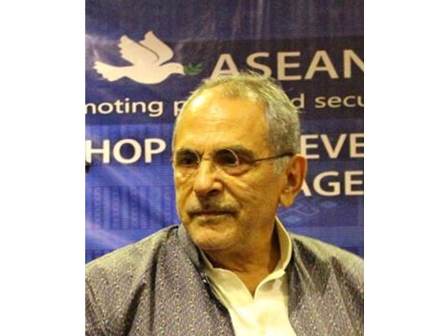
10:30 am – 10:45 am Photo Session
10:45 am – 11:00 am Break
11:00 am – 11:15 am Setting the Context: Objectives of the Workshop and Linkages between Preventive Diplomacy and Early Warning
11:15 am – 12:15 pm Preventive Diplomacy in the ASEAN Regional Forum
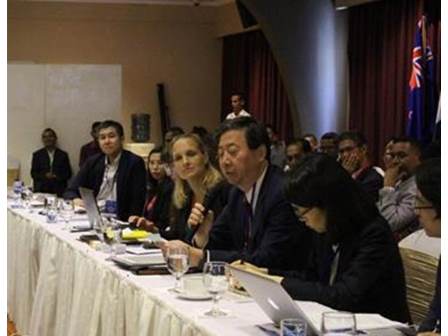
12:15 pm – 1:15 pm Lunch – [Novo Turismo Restaurant]
1:15 pm – 2:30 pm From Theory to Practice: The Importance of Civil Society Engagement in Early Warning
2:30 pm – 2:45 pm Break
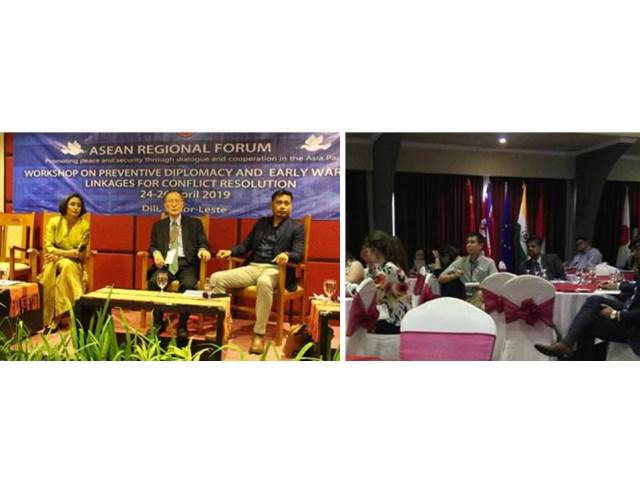
2:45 pm – 4:00 pm Early Warning Systems: Challenges, Opportunities and Trends in Southeast Asia and Beyond
4:00 pm – 5:30 pm Preventive Diplomacy, Early Warning and Scenario Planning
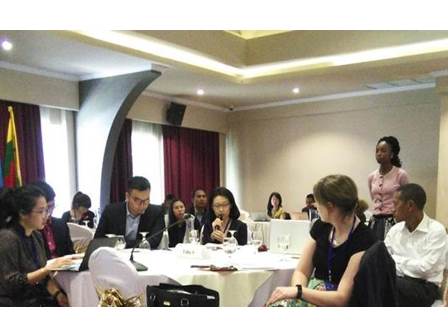
6:00 pm All guests to meet in lobby to head to welcome dinner
6:30 pm Welcome Dinner and Cultural Event hosted by Timor-Leste’s Minister of Foreign Affairs and Cooperation
Attire is smart casual or traditional dress
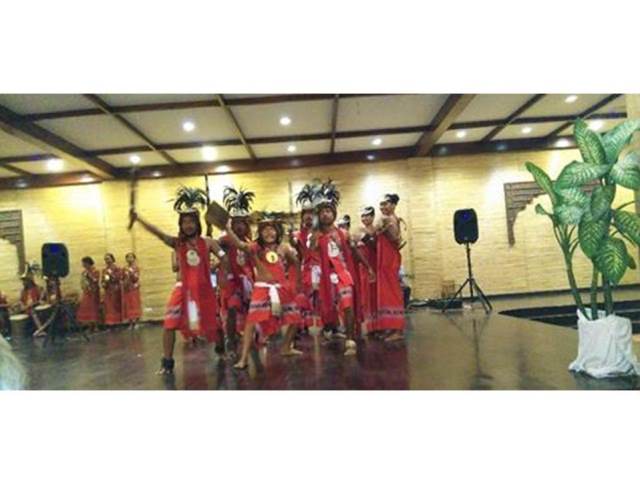
8:30 am Check-in of all participants – [Novo Turismo Ballroom]
9:00 am – 10:00 am Rotational Presentations
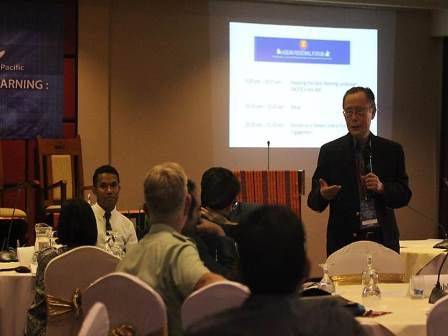
Designated ARF representatives will rotate from table to table to talk about early warning/early response systems in their respective countries and engage in discussions with other ASEAN participants.
10:15 am – 11:30 am Rotational Presentations (Continued)
11:30 am – 12:30 pm Analyzing a Conflict for Effective Response
12:30 pm – 1:30 pm Lunch – [Novo Turismo Restaurant]
1:30 pm – 4:30 pm Site Visit
The Belun Center
5:30pm Dinner for all delegates hosted by Timor-Leste’s Minister of Foreign Affairs and Cooperation
8:30 am Check-in of all participants – [Novo Turismo Ballroom]
9:00 am – 10:30 am Toward Effectiveness: Closing the Gap between Early-Warning Advisors and Early- Action Decision Makers
10:30 am – 10:45 am Break
10:45 am – 12:15 pm Early Warning Approaches and Enhancing Coordination in ASEAN: The Role of ASEAN-IPR
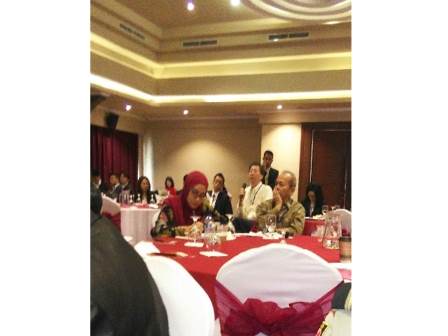
12:15 pm – 1:15 pm Lunch – [Novo Turismo Restaurant]
1:15 pm – 2:15 pm Exercise Resumes
2:15 pm – 2:30 pm Break
2:30 pm – 3:30 pm Debrief of Exercise in Plenary
3:30 pm – 4:00 pm Debriefing and Synthesis of Program
4:00 pm – 4:30 pm End-of- Workshop Evaluations
4:30 pm – 5:00 pm Closing Remarks
5:00 pm – 5:30 pm Distribution of Certificates
Morning departure of participants




